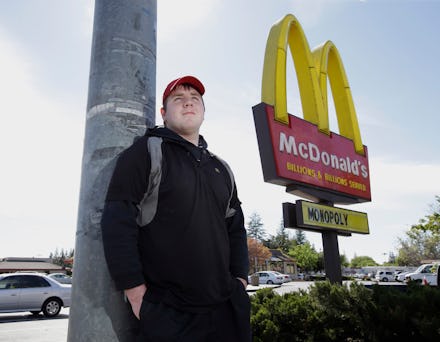These states will vote on increasing the minimum wage this election

The federal minimum wage is $7.25 an hour, but many states have raised that floor, including Massachusetts and California, which have a minimum wage of $10 an hour.
In November, five more states will vote on the minimum wage for working Americans.
Maine has a minimum wage of $7.50 an hour, just a quarter above the national minimum wage. On Nov. 8, voters will decide whether to raise that amount to $9 an hour in 2017, and raise it to $12 an hour by 2020, according to Ballotpedia.
Maine Republican Gov. Paul LePage has said he opposes the measure. He had proposed a measure to raise the minimum wage to $10 an hour.
"Raising the minimum wage, the way they are planning to do it, would put us back 25 years, it would be devastating," LePage told the Portland Press Herald in January. "It's going to bring us up to $12 in four years, highest in the nation. You can't attract people if you are the highest minimum wage."
Colorado also has a measure on the ballot this November to raise the state's $8.31 an hour minimum wage to $12 by 2020, according to Ballotpedia. But there is some concern over the increase from people in rural areas of the state.
"What's dangerous is there are no provisions for rural areas," Rod Slyhoff, president and CEO of the Greater Pueblo Chamber of Commerce, told the Pueblo Chieftain. "A diner in Wiley is not a diner in Denver."
In Arizona, voters will decide to raise the state's minimum wage from $8.05 an hour to $10 next year and then $12 by 2020. And then after that, the minimum wage would be raised in pace with cost of living, according to Ballotpedia.
South Dakota voters will choose whether to lower the minimum wage from $8.50 an hour to $7.50 an hour, according to Ballotpedia. And in Washington state, voters will weigh in on creating the highest minimum wage in any state, from $9.47 an hour to $13.50 and hour, by the year 2020.
Several cities also have measures on the ballot to raise the minimum wage to $15 an hour.
There is conflicting analysis over whether raising the minimum wage actually helps create jobs and improve the economy. One expert, Steven Fazzari of Washington University in St. Louis, has advocated for a national hike, rather than having different wages across the country "because a national policy limits the ability of employers to relocate to dodge the requirement. A national policy levels the playing field," PolitiFact reported.
Democratic presidential nominee Hillary Clinton has said she supports a $12 federal minimum wage. Republican presidential nominee Donald Trump said he would like to see it raised, possibly to $10 an hour.
Sept. 20, 2016, 4:24 p.m. Eastern: This story has been updated.